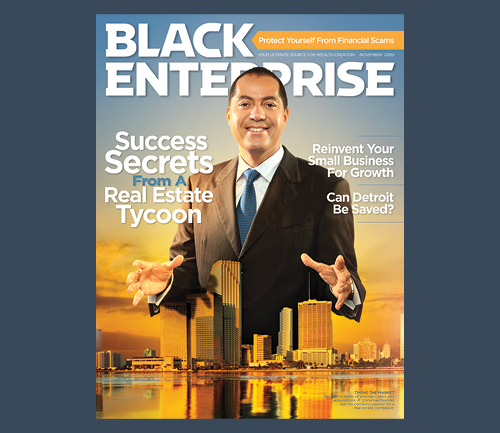50 MOST INFLUENTIAL BLACK ENTREPRENEURS OVER THE PAST 50 YEARS
One of the most rewarding aspects of BLACK ENTERPRISE’s mission has been to instruct and inspire African American entrepreneurs on how to best position their ventures and place them on the path to be included among the BE 100s: the nation’s largest Black-owned businesses. Publisher Earl G. Graves Sr. would be the first to beam with pride when an entrepreneur who declared years earlier that they would one day make the list wound up appearing on the coveted roster. That entrepreneur, however, would make that journey and achieve that milestone usually based on the example of one of the numerous business icons we have covered on the pages of our magazine and other media platforms over the past five decades.
Here we have identified a roster of those transformative, groundbreaking entrepreneurs who have encouraged and guided generations of African American business owners to achieve their commercial best. As they built business empires, developed innovative products and services, designed novel business models, and broke countless barriers, they have done no less than change our nation and the world.















